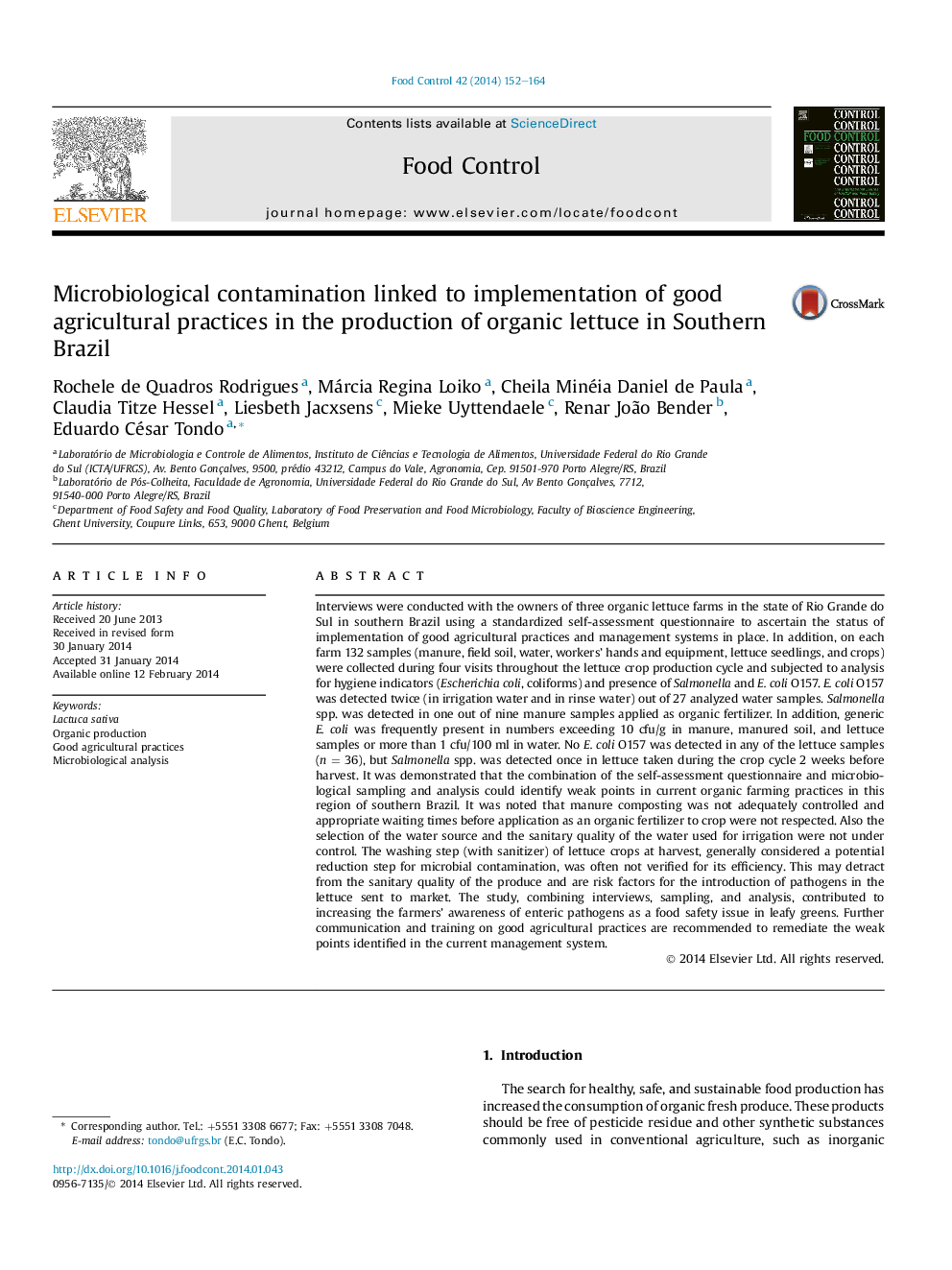| Article ID | Journal | Published Year | Pages | File Type |
|---|---|---|---|---|
| 6391671 | Food Control | 2014 | 13 Pages |
Abstract
Interviews were conducted with the owners of three organic lettuce farms in the state of Rio Grande do Sul in southern Brazil using a standardized self-assessment questionnaire to ascertain the status of implementation of good agricultural practices and management systems in place. In addition, on each farm 132 samples (manure, field soil, water, workers' hands and equipment, lettuce seedlings, and crops) were collected during four visits throughout the lettuce crop production cycle and subjected to analysis for hygiene indicators (Escherichia coli, coliforms) and presence of Salmonella and E. coli O157. E. coli O157 was detected twice (in irrigation water and in rinse water) out of 27 analyzed water samples. Salmonella spp. was detected in one out of nine manure samples applied as organic fertilizer. In addition, generic E. coli was frequently present in numbers exceeding 10 cfu/g in manure, manured soil, and lettuce samples or more than 1 cfu/100 ml in water. No E. coli O157 was detected in any of the lettuce samples (n = 36), but Salmonella spp. was detected once in lettuce taken during the crop cycle 2 weeks before harvest. It was demonstrated that the combination of the self-assessment questionnaire and microbiological sampling and analysis could identify weak points in current organic farming practices in this region of southern Brazil. It was noted that manure composting was not adequately controlled and appropriate waiting times before application as an organic fertilizer to crop were not respected. Also the selection of the water source and the sanitary quality of the water used for irrigation were not under control. The washing step (with sanitizer) of lettuce crops at harvest, generally considered a potential reduction step for microbial contamination, was often not verified for its efficiency. This may detract from the sanitary quality of the produce and are risk factors for the introduction of pathogens in the lettuce sent to market. The study, combining interviews, sampling, and analysis, contributed to increasing the farmers' awareness of enteric pathogens as a food safety issue in leafy greens. Further communication and training on good agricultural practices are recommended to remediate the weak points identified in the current management system.
Related Topics
Life Sciences
Agricultural and Biological Sciences
Food Science
Authors
Rochele de Quadros Rodrigues, Márcia Regina Loiko, Cheila Minéia Daniel de Paula, Claudia Titze Hessel, Liesbeth Jacxsens, Mieke Uyttendaele, Renar João Bender, Eduardo César Tondo,
